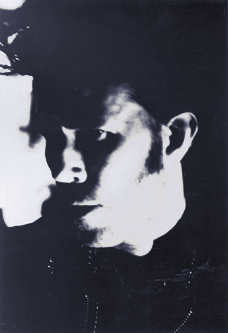

[ Metro Santa Cruz | MetroActive Central | Archives ]
'Dead' Alive on Record
The soundtrack for 'Dead Man Walking' is better than the movie
By Gina Arnold
Two weeks ago, the state of Utah executed its first prisoner by firing squad since doing in Gary Gilmore in 1977. At the same time, the new movie Dead Man Walking, which presents both sides of the debate over capital punishment and stars Susan Sarandon and Sean Penn, played in hundreds of theaters nationwide.
Both facts prove that capital punishment is still a relevant subject, even if the movie's pro-Catholic, pro-corn-dog take on the topic is somewhat less revelatory than even the most cursory media description of the death in Utah of convicted murderer John Albert Taylor.
More thought-provoking than either, perhaps, is the album Dead Man Walking (Sony/Columbia), which bills itself as being "music from and inspired by the motion picture." Released in conjunction with the movie, Dead Man Walking is the first soundtrack album to admit at the outset that most of the music on it isn't in the movie.
Most other recent soundtrack albums, from Clueless to Batman Forever, feature songs you never hear in the movie, no matter how hard you listen. Moreover, they are songs that are either on other records--like Flaming Lips' appropriately used "Bad Days" in Batman Forever, which actually appeared first on a year-old EP--or are stupid covers thrown into the mix for laughs (the Muffs doing Kim Wilde's "Kids in America" on Clueless).
The music on the Dead Man Walking album, however, was actually commissioned with the movie in mind. Director Tim Robbins asked high-profile artists like Bruce Springsteen, Tom Waits and Patti Smith to write songs about the movie's theme.
This tactic shows a certain measure of arrogance on Robbins' part--he obviously thinks extremely highly of the importance of his project. Even so, the resulting songs are remarkably moving; in many cases, they are far more artistically satisfying than the film itself. Interestingly, most of the songs on the album are imaginative first-person narratives from the killer's point of view, either explaining why he killed, or asking for mercy having done so. No one sings about the victims.
As is the case with most compilations, the selections are influenced by the amount one likes each artists. If you don't particularly care for Suzanne Vega's intensely wispy voice, you won't like her "Woman on the Tier (I'll See You Through)." But with the exception of Vega and Michelle Shocked, whose R&B-flavored "Quality of Mercy" is as strained as its chorus, the artists included on this compilation are hard to fault.
Tom Waits' "The Fall of Troy," which begins with the heartbreaking couplet "It's the same with men as with horses and dogs/nothing wants to die," is a highlight. The numbers by Smith, Cash and Lyle Lovett seem bound by their subject, but both Steve Earle's "Ellis Unit One" and Mary Chapin Carpenter's "Dead Man Walking (A Dream Like This)" are songs that could make you go out and buy a whole record by the artist.
The most powerful and inspired music is the collaboration between Pakistani devotional singer Nusrat Fateh Ali Khan and Eddie Vedder. This seemingly odd pairing creates a moving soundscape that punctuates and informs the entire movie, coloring it with an unfathomably eerie howl.
The two songs that bookend the movie--"The Face of Love" and "The Long Road"--are by far the most evocative noises on the record, while also being the least explicit. The lyrics don't narrate a plonky story like all the other songs, and yet the meaning is all the more clear.
Unfortunately, "The Long Road" is used beneath the harrowing rape and murder sequence, which has wrecked it for me. But that may just be a personal reaction. I was also the only one to leave the theater during that sequence, since I cannot stomach violence. In fact, I'm not sure why they had to illustrate the crime at all, since it had been discussed ad nauseam throughout the movie.
Another disturbing aspect of Dead Man Walking is the implication that rock artists can write to order, just like jingle writers or ad men. This notion is antithetical to one's vision of rock artists as uniquely inspired. Dead Man Walking proves that you can just give 'em a good strong theme, and they come through like gangbusters--songwriting is, after all, just a craft, like carpentry.
Springsteen seems to benefit most from this kind of thematic guidance. His "Dead Man Walking" was a highlight of his show in this area last November, a far more true and resonant number than any of the earnest and patronizing songs about immigrants and Vietnam vets that people his LP The Ghost of Tom Joad.
The whole thing makes me wonder what it is about killers and killing that makes them such good subjects for artists. They certainly captured the imagination of blues men and rock bands, from Robert Johnson to Nick Cave (whose new album, Murder Ballads, is devoted to the subject). The connection between rock and murder is obscure unless it is the same relationship that philosophers like Freud and Kant insist exists between sex and death. Whatever it is, it works here. Because of its careful choice of artists, Dead Man Walking is a good concept album--much better, for instance, than the myriad of tribute records that have flooded the market since the success of the Kurt Weill tribute, Lost in the Stars. Nevertheless, I wouldn't want to see too many records like this hit the market. Can you imagine, music inspired by the movie Seven or by Lethal Weapon, Part 8 ? Let's hope we're spared the agony. This page was designed and created by the Boulevards team.

Looking for Redemption: Sean Penn's killer is given musical voice on the soundtrack album.
From the Feb. 8-14, 1996 issue of Metro
Copyright © 1996 Metro Publishing and Virtual Valley, Inc.